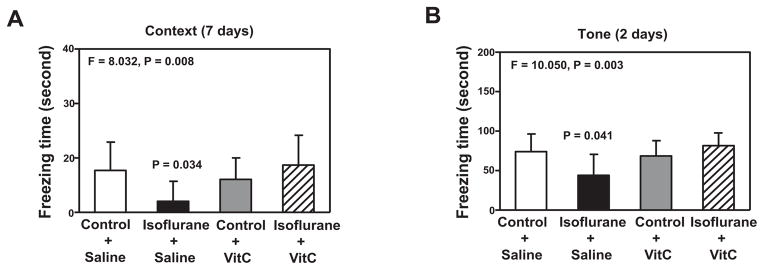Figure 6. VitC attenuates the isoflurane-induced learning and memory impairment in mice.

A. The treatment with isoflurane plus saline (black bar) decreases the freezing time in the context test of the fear conditioning system (FCS) as compared to the control condition plus saline (white bar) at 7 days after isoflurane anesthesia in mice. VitC treatment alone (gray bar) does not significantly affect freezing time as compared to the control condition plus saline (white bar) in the context test of the at 7 days after the isoflurane anesthesia. The treatment with isoflurane plus VitC (net bar) attenuates the isoflurane-induced reduction in freezing time in the context test of the FCS at 7 days after the treatment. B. The treatment with isoflurane plus saline (black bar) decreases freezing time in the tone test of the FCS as compared to the control condition plus saline (white bar) at 2 days after the isoflurane anesthesia in mice. The VitC treatment alone group (gray bar) does not significantly affect freezing time as compared to the control condition plus saline (white bar) in the tone test of the FCS at 48 hours after the isoflurane anesthesia. However, VitC (net bar) attenuates the isoflurane-induced reduction in freezing time in the tone test of the FCS at 2 days after the treatment. N = 10 in each group. FCS, fear conditioning system; VitC, Vitamin C.
